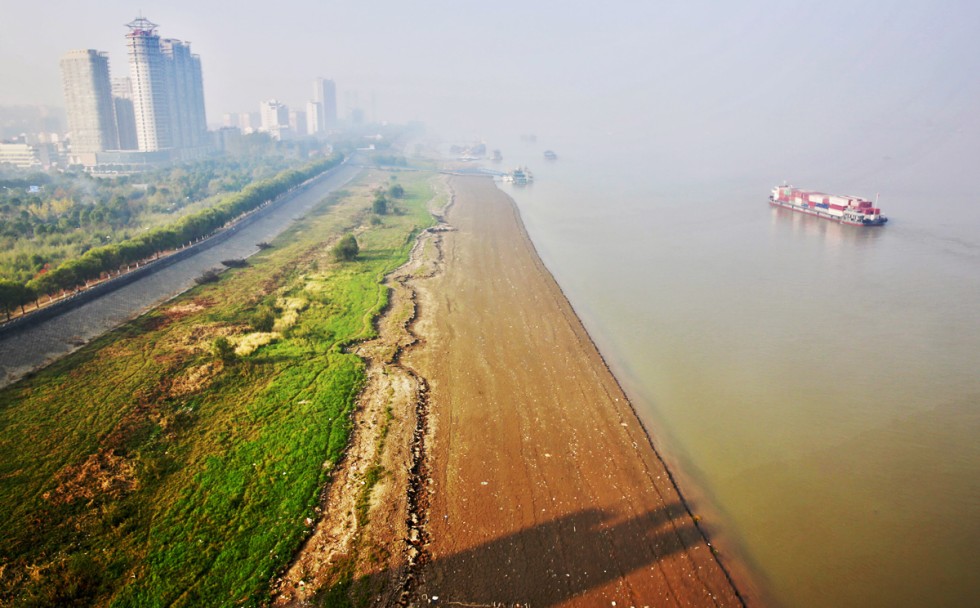China's polluters face tougher fines under new green rules
Violators face higher penalties but critics say the revised environmental protection law lacks teeth
PUBLISHED : Wednesday, 31 December, 2014, 11:22am
UPDATED : Thursday, 01 January, 2015, 8:28am
Li Jing [email protected]

A polluted stretch of the Yangtze River in Jiangxi. Photo: Xinhua
The mainland's "toughest ever" green rules come into effect today, with revisions to the environmental protection law ushering in higher fines and more stringent conditions for industry.
The new regulations aim to combat the scourge of pollution across the country but analysts have mixed opinions on the rules' prospect of success.
Under the revamped system, environmental offenders will have to pay higher penalties and polluters will have to obtain emission permits before going into production.
The changes also make it easier for the public to monitor and sue polluters, and force local officials to take greater responsibility for environmental oversight.
Federation of Hong Kong Industries deputy director Daniel Cheng said the revisions showed the leadership was more serious than ever about tackling pollution. He also said that President Xi Jinping's crackdowns on corruption would deter officials from shielding polluters.
Ma Jun, head of environmental group the Institute of Public and Environmental Affairs, said the end of the 500,000 yuan (HK$630,000) cap on fines for polluters could make a difference. In theory, penalties can be calculated on a daily basis and add up to huge sums, making it more worthwhile for companies to invest in proper pollution treatment.
"Investors do not care about pollution problems unless the prospects of returns are threatened. The new penalty mechanism is a starting point for change," Ma said.
But Renmin University professor Song Guojun said the changes lacked teeth and the effectiveness of the penalties hinged on application.
"The mechanism works in the United States because a company's 'illegal gains' - or earnings made during its environmental violation - are confiscated," Song said. "That is the real deterrent for polluters."
He also said that regulators had designed the permits as "vouchers" for buying the right to emit pollutants when they should have developed legally binding agreements to control companies' pollution emissions.
"The 'voucher' is like buying a bus ticket for taking a ride, with which companies can easily pay to pollute," Song said.
Wang Canfa, an environmental law professor at China University of Political Science and Law, said the revisions were "in line with China's development status".
The changes come just two days after the Jiangsu High People's Court ordered six companies to pay a total of 160 million yuan for dumping nearly 26,000 tonnes of chemical waste into rivers.
The fine is the highest environmental class action payout ever imposed on the mainland.
But the inconvenient truth of China's worsening environmental crisis is that supervision continues to be lax and the costs of violating environmental regulations are so low that many companies would rather break the law than abide by it.
National Business Daily reported yesterday that when one Shandong pharmaceutical company was accused of falsifying pollution data and discharging waste with high levels of antibiotics into nearby rivers last week, a company source argued that the costs for treating pollutants were too high.
"If [we] fully abide by national environmental standards, the cost will be so high that all manufacturers of antibiotics in the eastern part of the country will have to relocate, either to western provinces or out of the country," the report quoted the source as saying.
